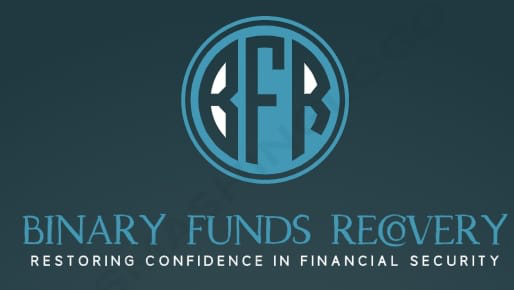The Foreign Exchange Market, commonly known as Forex, is one of the largest financial markets in the world. It draws innumerable traders, investors, and speculators with a daily trading volume of trillion dollars. The Forex market is, however, afflicted by a darker side: frauds, in addition to the legitimate prospects for profit. Scams involving forex trading can take many different forms, from Ponzi schemes to dishonest brokers. The world of Forex scams will be explored in this article, along with tips on how to avoid becoming a victim and a list of their common traits.
What is forex scams?
Forex scams manifest in various guises, yet they share a common objective: extracting funds from unsuspecting forex traders. These scams encompass the sale of products that fail to deliver as promised, the impersonation of renowned forex traders or investors to gather sensitive personal information, the establishment of fraudulent websites mimicking reputable brokers to abscond with deposits, and a myriad of other dishonest and often illegal tactics aimed at defrauding traders and investors.
Forex scams are cleverly designed to prey on the vulnerabilities and desires of unsuspecting individuals. They often masquerade as legitimate investment opportunities but typically lack transparency and regulatory oversight.
Here are some common characteristics of Forex scams:
- Promises of Quick Riches: Scammers lure victims with promises of astronomical profits in a short period. They play on the desire for quick and easy wealth, which is a red flag.
- Lack of Regulation: Many Forex scams operate in regions with lax regulatory oversight or in unregulated environments. This allows them to evade scrutiny and take advantage of unsuspecting traders.
- Unrealistic Guarantees: Forex scams typically guarantee minimal or zero risk, promising that the investor can’t lose. In reality, Forex trading always carries risk.
- High-Pressure Sales Tactics: Scammers often employ high-pressure tactics to persuade potential victims to invest quickly. They use psychological manipulation to create a sense of urgency.
- Hidden Fees and Commissions: Unscrupulous brokers may charge exorbitant fees or commissions, making it challenging for investors to earn a profit.
- Fake Credentials: Scammers sometimes present fake or misleading credentials, such as forged licenses or nonexistent track records, to appear trustworthy.
Common Types of Forex Scams
Forex broker scams
Unscrupulous individuals resort to impersonating reputable forex brokers or pre-existing investment platforms, all in a ploy to lure unsuspecting individuals into investing in imaginary forex funds. These fraudsters frequently exploit the name and registration details of a legitimate forex broker for a veneer of credibility. Additionally, some scammers create identical websites to ensnare investors into making financial commitments to their fraudulent schemes.
Forex robot scams
A forex robot refers to a software program designed to execute currency buy and sell orders automatically, following a predetermined algorithm. However, certain unscrupulous individuals peddle unverified or counterfeit software that executes trades haphazardly, potentially leading investors to financial losses.
Forex pyramid scheme
Forex pyramid schemes revolve around the recruitment of new members into investment collectives, purportedly offering insights and information to enhance their forex trading success. Participants in these schemes are required to pay a subscription fee and are incentivized to enlist more individuals, allowing them to earn commissions.
This fraudulent setup generates revenue primarily from membership fees rather than legitimate profits derived from forex trading activities. The term “pyramid scheme” is aptly used because as fresh recruits join, one ascends higher within the pyramid structure and ostensibly ‘earns’ more money. However, when recruitment saturates or experiences a decline, organizers typically shutter the scheme, absconding with all the collected funds.
Forex Ponzi scheme
Scammers employ Forex Ponzi schemes to promote fictitious forex investment opportunities, promising extraordinarily high returns within a brief timeframe. Typically, they request only a modest initial investment and promptly deliver the pledged returns to initial investors, creating the illusion of a thriving operation. As soon as a sufficient number of participants contribute to the scheme, these fraudsters disappear with the accumulated funds, leaving investors with empty hands.
Protecting Yourself from Forex Scams
Protecting yourself from Forex scams requires vigilance, education, and adherence to best practices. Here are some tips to help safeguard your investments:
- Research Thoroughly: Before investing, research the broker or investment opportunity. Look for reviews, regulatory information, and any red flags.
- Verify Regulatory Compliance: Ensure the broker or investment scheme is regulated by a reputable financial authority. Verify the broker’s license and registration.
- Avoid Unrealistic Promises: If it sounds too good to be true, it probably is. Avoid any investment that guarantees risk-free profits.
- Keep Records: Maintain records of all your transactions, communication with brokers, and any promises made. This documentation can be crucial if you need to take legal action.
- Seek Professional Advice: Consult with a financial advisor or attorney to evaluate the legitimacy of an investment opportunity.
Conclusion
Forex scams are an unfortunate reality in the financial world, preying on those seeking to profit from the dynamic currency markets. While the allure of quick riches can be tempting, it’s essential to remain vigilant and educated. By recognizing the common characteristics of Forex scams and following best practices, you can significantly reduce your risk of falling victim to fraudulent schemes.
If you suspect you’ve been ensnared by a Forex scam, it’s vital to take swift action to mitigate your losses and explore the possibility of recovering your funds. Initiate the process by filing a complaint on our website via our designated complaint form, where you can also access free consultation with our team of experts specializing in fund recovery services.
Our Social Pages

